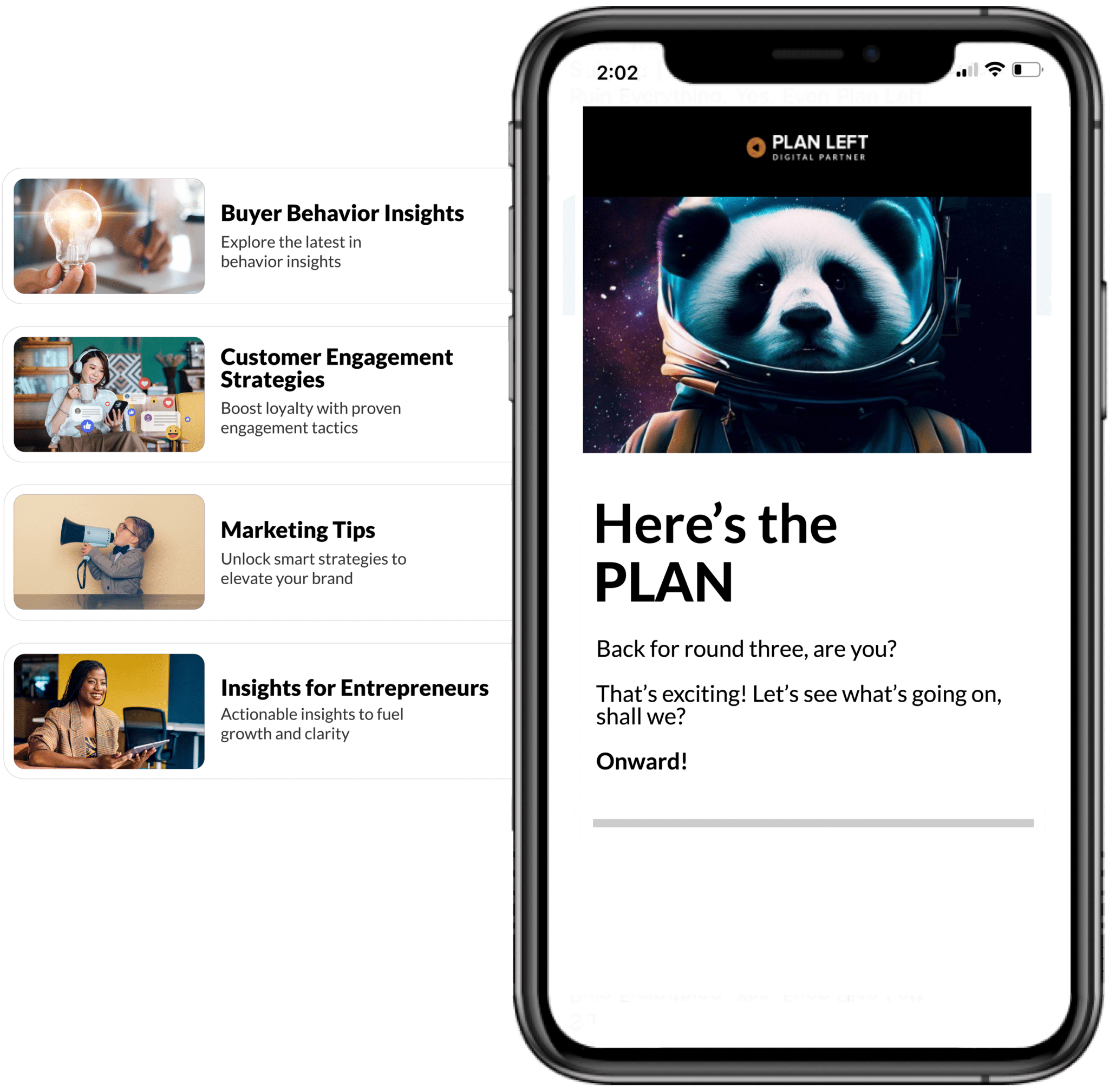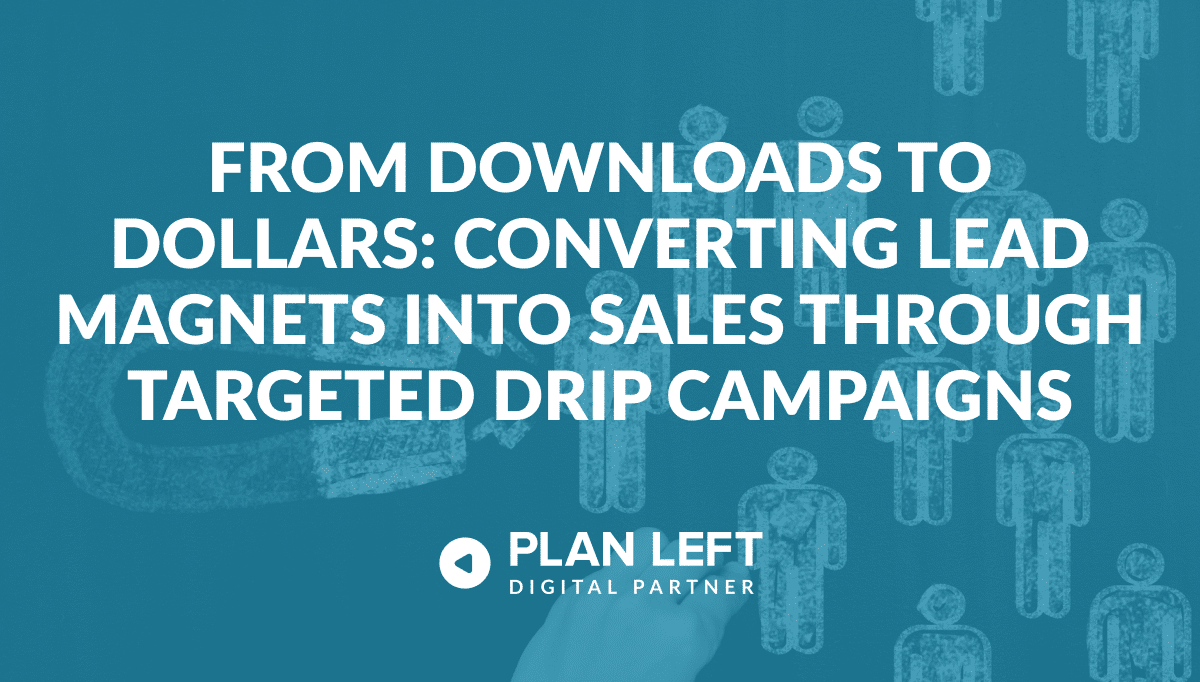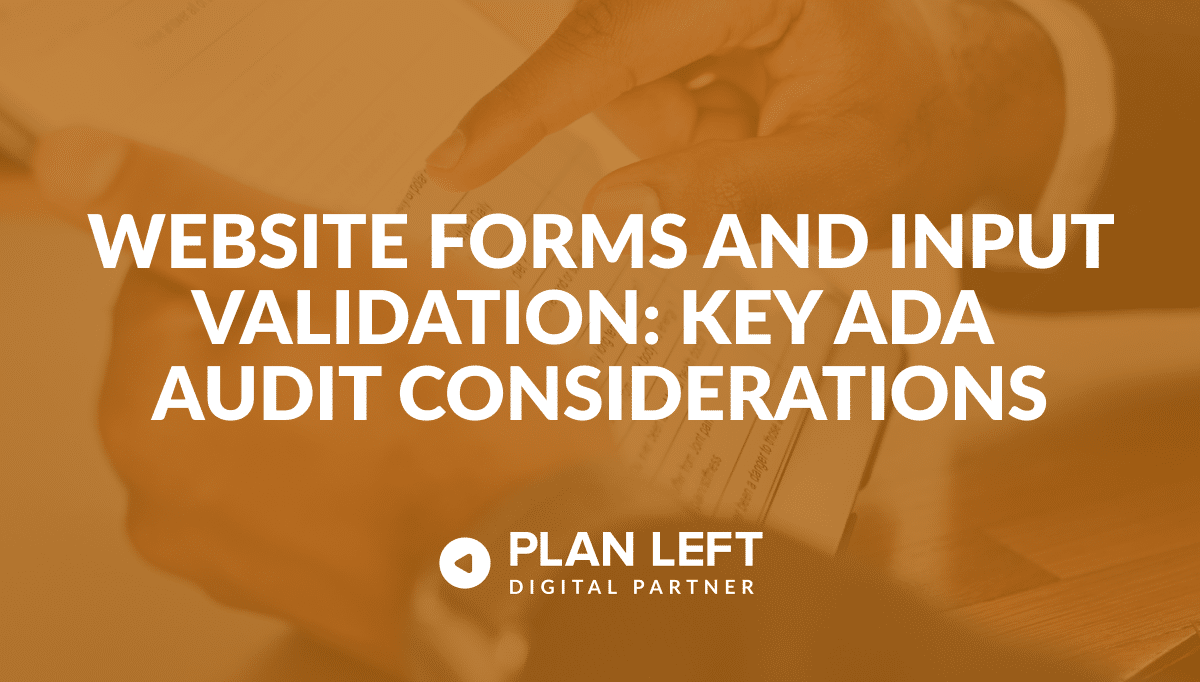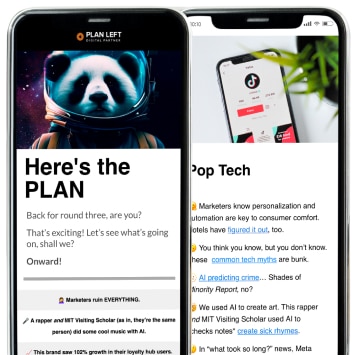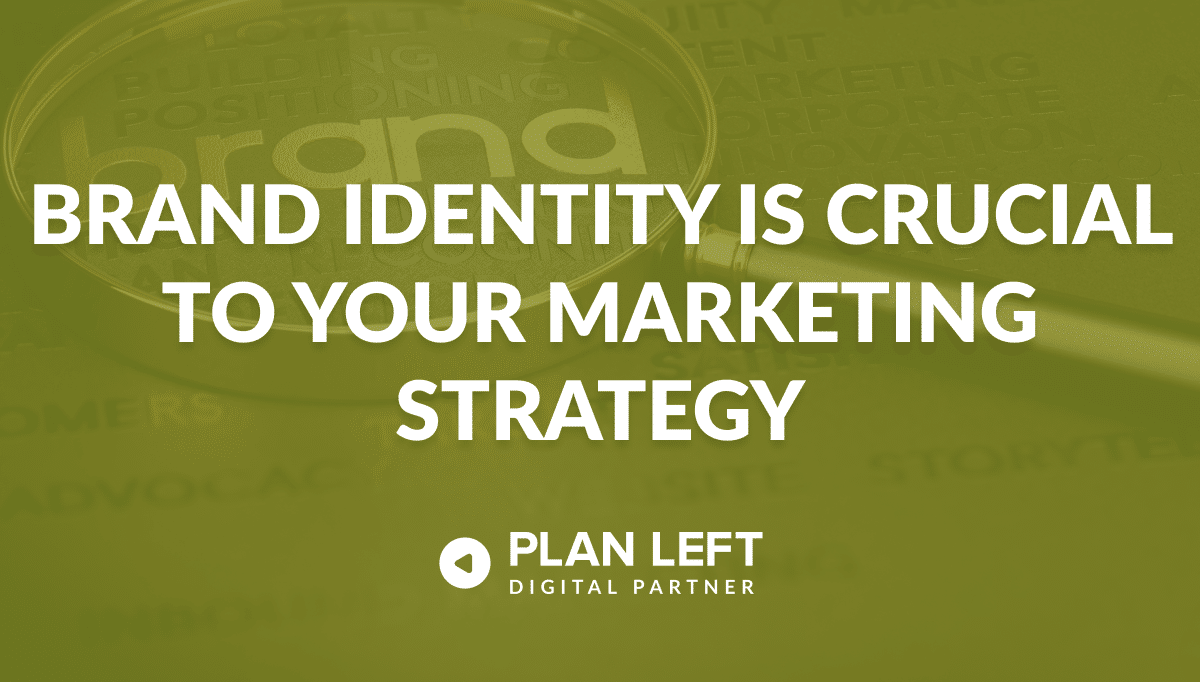
Business owners may overlook the advantages of getting a brand consultation because they think they have it covered when they might not even be sure what their brand identity actually is. However, 68% report that the continuity of their brand identity contributes anywhere from 10% to more than 20% of their revenue growth.
What Is Your Brand Identity?
Is your brand a logo? Is it your mission statement? Your motto? Or is it your awesome product? In reality, your brand is so much more than the sum of its parts. It’s public perception—how buyers see your company, regardless of how you want them to.
People are already interacting with your brand as a living entity. Ideally, you want to be in control of that interaction, leading that perception the way you want it. You can do that in a number of ways, and by doing so, you add value to your brand.
By engaging in a brand consultation, you define your brand identity and strategically position your business to achieve long-term success by discussing:
- What your brand ideals are.
- Who your target audience is.
- The way your company will present itself to your audience.
Impact of a Brand Consultation
A brand consultation impacts various aspects of your business. Addressing these areas offers a comprehensive and holistic approach to branding that supports your long-term business success and staying power.
Internal Alignment and Culture
- Employee Engagement: A brand consultation can help align employees with the brand’s values and mission, building a stronger internal culture and improving overall morale and productivity. Example: Adobe’s “Adobe Life” program empowers employees to share their experiences and company news on social media, enhancing internal culture and attracting top talent.
- Training and Development: It can provide a framework for employee training programs that help everyone in the organization understand and embody the brand. Example: IBM’s “IBM Voices” initiative allows employees to share industry insights and innovations, reinforcing the brand’s values and expertise.
Strategic Decision Making
- Informed Decisions: By providing detailed market research and consumer insights, a brand consultation enables more informed strategic decisions, reducing risks and increasing success opportunities. Example: Apple’s focus on product innovation, such as the iPhone and iPad, was driven by strategic decisions informed by market research, positioning the brand as a market leader.
- Resource Allocation: It helps identify the most effective ways to use resources so that investments in marketing and branding yield the highest returns. Example: Volvo’s emphasis on automotive safety as a core value led to strategic resource allocation towards safety features, enhancing its market position.
Innovation and Product Development
- New Product Lines: Insights from a brand consultation can guide the development of new products or services that align with the brand’s identity and meet market needs. Example: Beyond Meat’s development of meatless burgers revolutionized the vegan food market by aligning product innovation with environmental sustainability.
- Market Expansion: It can provide strategies for entering new markets or segments, helping the business grow and diversify its revenue streams. Example: Airbnb’s innovative approach to customer experience allowed it to expand globally, offering unique lodging options that compete with traditional hotels.
Customer Relationships and Loyalty
- Enhanced Customer Experience: A brand consultation can improve the overall customer experience by mapping the customer journey and identifying key touchpoints, leading to higher satisfaction and loyalty. Example: Zappos’ focus on exceptional customer service and unique company culture has built a loyal customer base.
- Personalization: It can help in developing personalized marketing strategies that resonate more deeply with customers, fostering stronger relationships and repeat business. Example: Starbucks’ loyalty program uses customer data to personalize offers, enhancing customer retention and satisfaction.
Crisis Management and Reputation
- Crisis Preparedness: A brand consultation can include strategies for managing potential crises, showing that your brand can maintain its reputation even in challenging times. Example: Johnson & Johnson’s handling of the Tylenol crisis is a classic example of effective crisis management, maintaining the brand’s reputation.
- Reputation Management: It helps build a strong, positive brand reputation that can withstand negative events or publicity. Example: Mars’ focus on its Five Principles (Quality, Responsibility, Mutuality, Efficiency, and Freedom) has built a strong, trusted brand reputation globally.
Long-Term Vision and Sustainability
- Future-Proofing: By anticipating market trends and consumer behavior changes, a brand consultation can help future-proof the brand, keeping it relevant and competitive over time. Example: PepsiCo’s expansion of the Quaker brand into new food and beverage categories demonstrates future-proofing through brand extension.
- Sustainable Practices: Incorporates sustainability into the brand strategy, aligning the brand with environmental and social governance (ESG) goals, which are increasingly important to consumers. Example: Beyond Meat’s commitment to reducing environmental impact through innovative product development aligns with sustainability goals.
Stakeholder Engagement
- Stakeholder Buy-In: Engaging internal and external stakeholders through consultation creates broader buy-in and support for the brand strategy, facilitating smoother implementation and greater impact. Example: Caterpillar’s alignment of internal culture with core values like integrity and teamwork has built strong stakeholder trust and support.
- Transparency and Trust: Regular consultation and feedback build transparency and trust with stakeholders, boosting the brand’s credibility and reliability. Example: IBM’s employee advocacy program “IBM Voices” enhances transparency and trust with stakeholders.
Performance Metrics and Continuous Improvement
- KPIs and Measurement: Establishing key performance indicators (KPIs) and measurement frameworks allows for ongoing assessment and refinement of the brand strategy, maintaining continuous improvement and adaptation. Example: PwC’s focus on customer experience metrics helps companies track performance and make data-driven improvements.
- Data-Driven Insights: Leveraging data and analytics to track performance and customer feedback helps make informed adjustments to the brand strategy and optimize its effectiveness. Example: Ulta Beauty’s loyalty program uses customer data to drive repeat purchases and enhance customer retention.
Benefits of Strengthening Your Brand
As a business owner, there are several benefits to strengthening your brand:
- Price Point: Consider a brand like Starbucks. Is their coffee all that different from what you would get in a local coffee shop? Not really. And yet, in the local shop, a customer might balk at paying $2.00 for a cup of coffee. But, at the same time, people flock to the nearest Starbucks to lay down twice that amount for something similar. This is because people associate Starbucks coffee as being worth a higher cost.
- Customer Loyalty: Take a look at some of the most popular brands, such as Nike or Apple. When a customer starts buying Nike, they become comfortable with them and don’t want to take chances with any other brand of sneakers. Likewise, an “Apple person” will almost always wait for the upgrades to their tech before even thinking of switching devices to cover several pieces of tech.
- Help Your Marketing Team: It’s not easy to do a job when you are unclear about what is expected. Especially if you work in a company’s marketing department and don’t know the selling points of your company’s product. A brand consultation should show you a plan to maximize every customer’s experience. When complete, you should be able to nail down your brand’s identity and match the services and audience that you are trying to reach.
What Can You Expect in a Brand Consultation?
With more than 70% of consumers buying from companies that share their values, how you represent your brand is everything. The consultation is a time to examine your company’s identity and values and work through a discovery process that will form the foundation of your brand.
Consider the following during your consultation:
- Identify Your Audience and Competitors: Understanding your target market and the competition is crucial. This involves creating detailed buyer personas and conducting competitive brand analysis to find your brand tone, brand voice, and unique positioning.
- Differentiation and Unique Positioning: Identifying your unique selling proposition and differentiating yourself from your competitors involves a comprehensive marketing research overview that provides a complete understanding of the competitive landscape. This allows for a more effective brand development of core values and brand positioning.
- Discuss What Has and Has Not Worked: Reviewing past strategies and their outcomes helps in understanding what resonates with your audience and what doesn’t. This can include analyzing market research and customer feedback to identify key insights.
- Develop a Plan That Guides Your Brand in the Right Direction: This involves crafting a comprehensive brand strategy that includes your brand’s purpose, mission, and values. It also means defining your brand architecture, as well as creating brand guidelines to maintain consistency across all touchpoints.
Practical Outcomes of Your Brand Consultation
From refining your brand identity to enhancing your customer experience, the outcomes of a thorough brand consultation can change the way your business operates and connects with your audience. Here are some of the key areas where a brand consultation can make the most impact to help you strategically position your brand for sustained growth and market relevance:
- Brand Identity Development: Creating a unique brand name, logo, and visual identity, and developing brand guidelines to maintain consistency in all marketing materials.
- Market Positioning: Identifying and targeting the ideal customer segments and differentiating the brand from competitors in the marketplace.
- Brand Messaging: Crafting a compelling brand story, identifying key messages, and aligning all communication with the brand’s values and tone.
- Customer Experience Enhancement: Improving customer touchpoints, from initial contact to after-sales support, and designing customer journeys that enhance satisfaction and loyalty.
- Product Development and Innovation: Aligning new product offerings with the brand’s identity and market positioning and utilizing customer feedback to refine and innovate products.
- Marketing Strategy: Developing comprehensive marketing plans that leverage the brand’s strengths and implementing digital marketing strategies, including social media, content marketing, and SEO.
- Internal Branding: Engaging employees with the brand’s mission and values and creating internal communications strategies to foster a strong corporate culture.
- Brand Equity Measurement: Setting up metrics to measure brand awareness, perception, and loyalty and conducting regular brand audits to align with goals.
- Rebranding Efforts: Updating or overhauling the brand’s visual and verbal identity and communicating changes effectively to both internal and external stakeholders.
- Crisis Management: Developing strategies for managing and mitigating brand-related crises and executing rapid and effective communication during adverse events.
- Partnership and Sponsorship Strategies: Identifying and securing partnerships that boost the brand’s reputation, including leveraging sponsorship opportunities to increase visibility and credibility.
Ultimately, investing in a brand consultation empowers you to understand your market better, differentiate your offerings, and build lasting relationships with customers. As you embark on this journey of brand refinement, remember that a strong brand is more than just a logo—it’s the perception and trust you cultivate over time. Embrace the process and watch your business flourish in alignment with its core values and mission.
Explore Latest Posts
Your lead magnet has successfully attracted hundreds of downloads—but where are the sales? This disconnect between lead generation and revenue ... read more
July 10, 2025
Every click, every input, every submission tells a story. For users with disabilities, website forms can be either welcoming gateways ... read more
July 9, 2025
ADA website accessibility audits require a blend of technical expertise and strategic planning to ensure compliance with WCAG standards. While ... read more
July 7, 2025
Essential Strategies for Entrepreneurs
Get Actionable Business Insights & Marketing Tips
Our newsletter delivers real-world strategies from entrepreneurs who’ve been exactly where you are.
Sign up now for:
- Actionable growth strategies that work
- Insider tactics for attracting top talent
- Real-world case studies from successful founders
- Emerging tech trends that drive innovation
- Pragmatic marketing approaches for visionary leaders
